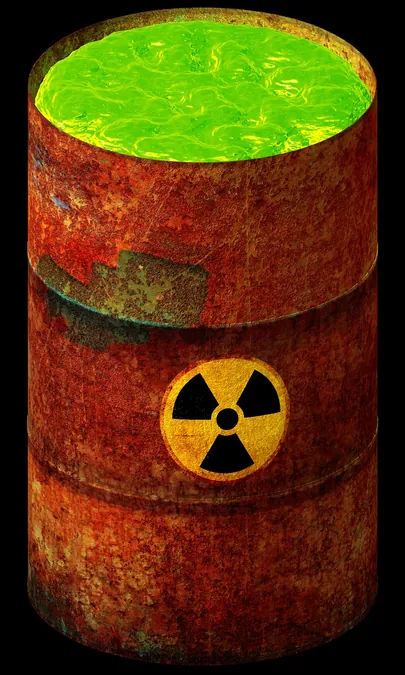
shocking new study links low-dose radiation exposure to cancer risk – what you need to know!
2024-10-07
Author: Wei Ling
Groundbreaking Update to the International Nuclear Workers Study (INWORKS)
A groundbreaking update to the International Nuclear Workers Study (INWORKS) has shed light on the complex relationship between radiation exposure and cancer risk. This expansive international epidemiological study, led by Dr. David Richardson, a professor at UC Irvine's Joe C. Wen School of Population & Public Health, aims to evaluate the long-term effects of ionizing radiation on workers in the nuclear sector.
Focus on Low-Dose Exposure and Hematological Cancers
The latest research focuses on how low-dose exposure to penetrating forms of ionizing radiation may influence the development of hematological cancers, including leukemia, lymphoma, and multiple myeloma. The study involved an impressive cohort of over 300,000 workers from the United States, the United Kingdom, and France, who were employed in nuclear facilities between 1944 and 2016.
Research Methodology and Findings
Employing advanced Poisson regression methods, the researchers carefully analyzed the radiation absorbed by the bone marrow of these workers. This meticulous approach allowed them to gauge not only the incidence of leukemia—excluding chronic lymphocytic leukemia—but also other derivatives such as myelodysplastic syndromes and both Hodgkin and non-Hodgkin lymphomas.
Significant Association with Increased Mortality Rates
Stunningly, the findings revealed a significant association between prolonged low-dose ionizing radiation exposure and increased mortality rates from these specific types of cancer. While the risk remains low at levels typically encountered in the workplace, the interplay between total radiation exposure and diseases like multiple myeloma signals an urgent need for further research. Such studies could reshape conversations surrounding radiation protection and occupational safety standards on a global scale.
Expert Insights
Dr. Richardson emphasized the importance of these discoveries: 'Our studies of people exposed to low doses of radiation add to our understanding of radiation risks at the exposure levels encountered in many contemporary settings. Our results can inform radiation protection standards and will provide essential input for discussions on protections from radiation.'
Call for Stronger Protective Measures
As we delve deeper into the implications of these findings, it becomes increasingly clear that proactive measures in workplace safety and updated regulatory frameworks are crucial. The potential health risks for workers in radiation exposure-intensive industries cannot be ignored, prompting a call for stronger protective measures to safeguard public health.
Conclusion and Future Outlook
Stay tuned as we continue to track the developments in radiation research and its implications for cancer prevention strategies!


 Brasil (PT)
Brasil (PT)
 Canada (EN)
Canada (EN)
 Chile (ES)
Chile (ES)
 España (ES)
España (ES)
 France (FR)
France (FR)
 Hong Kong (EN)
Hong Kong (EN)
 Italia (IT)
Italia (IT)
 日本 (JA)
日本 (JA)
 Magyarország (HU)
Magyarország (HU)
 Norge (NO)
Norge (NO)
 Polska (PL)
Polska (PL)
 Schweiz (DE)
Schweiz (DE)
 Singapore (EN)
Singapore (EN)
 Sverige (SV)
Sverige (SV)
 Suomi (FI)
Suomi (FI)
 Türkiye (TR)
Türkiye (TR)